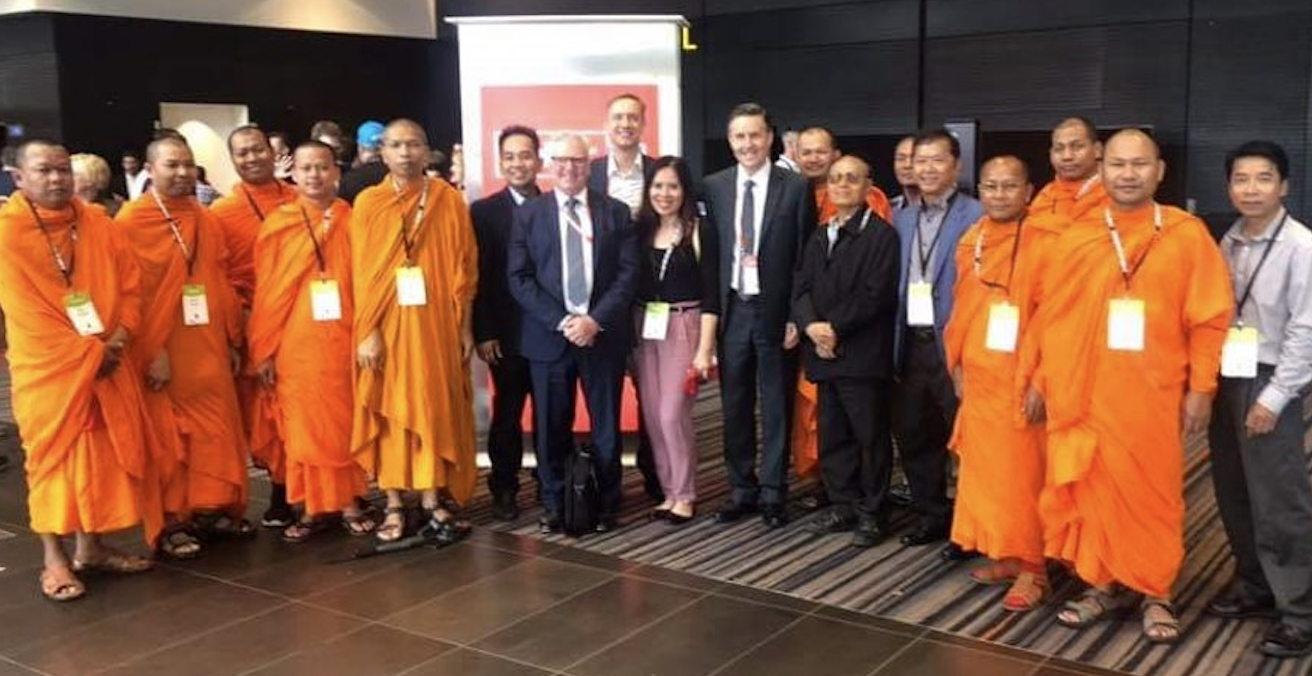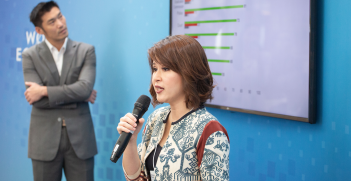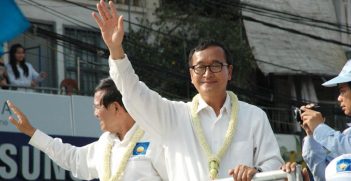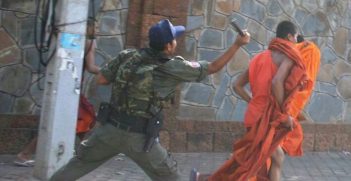Cambodia’s Authoritarian Regime Rejected on Australian Soil

For the first time since the creation of Cambodia as a sovereign nation, members of its ruling party were being named and shamed by prominent members of the Opposition in the Australian Federal Parliament.
Leading the charge was Julian Hill, deputy chair of the Joint Committee of Public Accounts and Audit. The member for Bruce introduced a seven point motion, followed by powerful speeches from six Labor members, including Shadow Treasurer Hon. Chris Bowen, Chris Hayes, Claire O’Neil, Dr Jim Chalmers and Anne Stanley.
The government’s “considered and discreet” foreign policy on Cambodia caused Hill to demand that Canberra take action. Following a series of reports on the ABC and relentless community demonstrations, the issue has now been escalated by members of the Opposition.
A significant part of the motion is referred to in clause 5, which calls on the government to:
(a) review Australia’s international development assistance to Cambodia to ensure the program is focused on humanitarian and civil society support rather than broader cooperation with Hun Sen’s regime;
(b) examine the introduction of targeted sanctions such as visa restrictions and asset freezes for members of Hun Sen’s regime and their families, given the reported strong links between the regime’s key officials and Australia;
The call for “stronger measures” by Labor’s federal members of parliament is reflected in the July statement issued by the Hon. Michael Kirby. For the first time since Kirby’s retirement from his UN role as a special representative on human rights to Cambodia in 1996, Australia’s eminent statesman called for action:
“The actions in Cambodia against the opposition parties are so extreme that they well merit a strong response from the democratic parliament of Australia.”
For the first time, members of parliament are willing to rock the diplomatic status quo of the Australia-Cambodia relationship.
However, this authoritarian regime is blatantly contemptuous of Australia’s multicultural values. It is odd that the Australian government maintains its policy of being “discreet” and “considerate” towards Cambodia’s regime, which can only be described as illegitimate and not representative. The national election in July established that the government was deemed flawed by the international community.
The Federal Government’s lack of response in the face of credible Australian media reports and the community’s rejection of Cambodia’s regime is extremely odd, to say the least.
Indeed, the local Cambodian diaspora had alerted the Australian community of Hun Sen’s authoritarianism as early as October 2016. The communities in Sydney and Melbourne were horrified when they learned of the mass radicalisation of students and other members of the community by Hun Sen’s officials.
Immediately, those communities saw what was coming and took measures by approaching their respective members of parliament to speak at local events. The presence and support of their respective members of parliament was necessary for the community to gain trust in politicians who could protect and defend them from the rise of authoritarian elements in Australia.
Buddhist temples once considered to be sacred places of worship built proudly for local diaspora escaping the oppressive regime led by Hun Sen became community outlets for members of parliament to speak not about religion but human rights and Hun Sen’s forces.
In Sydney, the community turned to Bowen, Hayes and Stanley, whose electorates retain the most constituents of Cambodian background. These MPs’ position on the issue has given the community the message that the Federal Government failed to deliver: authoritarianism shall not be allowed to exist alongside Australia’s multicultural values.
Speaking in Parliament last month as he supported the motion introduced by Hill, Chris Hayes, chief opposition whip, reminded:
We cannot ignore the illicit activities by members of the Cambodian People’s Party in Australia, particularly when it comes to visa fraud and money laundering.
Within the CPP elite, Hun Manet, Hun Sen’s son, has visited Australia many times and oversees CPP political infiltration operations here and in New Zealand. Hun To, Hun Sen’s nephew, who has children and assets in Melbourne, has been implicated in a heroin and money-laundering syndicate targeting Australia. Dy Vichea, Hun Sen’s son-in-law and deputy chief of Cambodia’s police—a gangster force—has mysterious business in Australia… (emphasis added).
The CPP has divided Australia and New Zealand into regions and has front groups overseen by key people in most Australian capital cities.
In the Senate, Cambodia also featured on the agenda of the Senate Estimates Hearing. Greens Leader Senator Richard Di Natale pressed Foreign Minister Payne on the possibility of imposing sanctions on Cambodia and whether the current situation in Cambodia amounts to a violation of the Paris Peace Accords. The response from the department’s staff was to the effect of: “we have not received advice from the UN.”
It is clear that Australian politicians, with the exception of the government, will stand with their local communities as opposed to being “discreet and considerate” with dictators.
As Hun Sen’s officials continue to infiltrate the community on Australia’s soil, it is imperative that the federal government take steps to curb the rise of authoritarianism. The community values of respecting human rights and multiculturalism are now being threatened.
The Federal Government must stand together with the community and protect vulnerable diaspora groups from Hun Sen’s tentacles.
Despite the condemnations of the international community, Canberra is yet to make its position regarding the legitimacy of Hun Sen’s regime clear.
As of last month, the Clause 6 of the Inter-Parliamentary Union (IPU) read:
[The IPU] denounces the fact that all 55 parliamentarians of the only opposition party elected to the National Assembly were stripped of their parliamentary mandates and were banned from political life for five years as a result of a Supreme Court ruling and on the basis of legislation, which ran completely counter to their individual and collective rights to take part in the conduct of public affairs and their right to a fair trial;
Considering the unstoppable onslaught of Hun Sen’s forces in Australia and the violations of human rights in Cambodia former Justice of the High Court Michael Kirby, provides some words of wisdom:
Sometimes it is natural to despair. Cambodia particularly often engenders such a feeling. But our commitment to future generations obliges us to persist and never to give up. To be dogged and always to bounce back in the cause of universal human rights. This is the way of the future.
Sawathey Ek OAM is a lawyer, Principal of E K Lawyers (Sydney) and Spokesperson for the Cambodian Action Group and Cambodian Australian Federation Inc.
This article is published under a Creative Commons Licence and may be republished with attribution.





